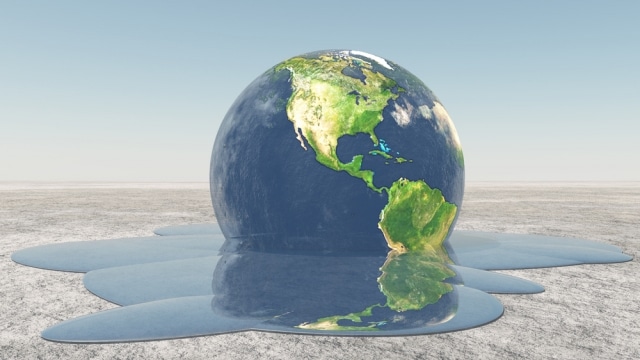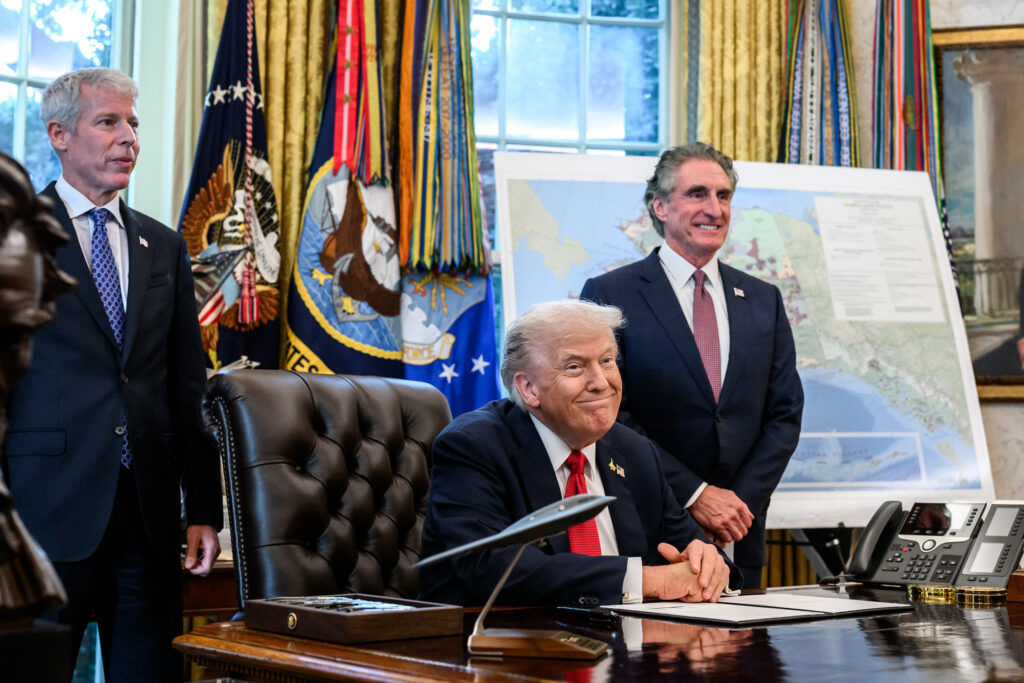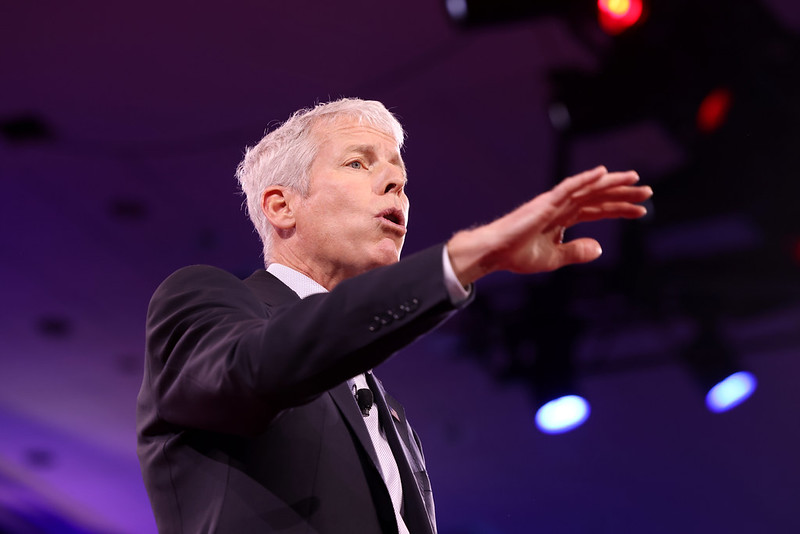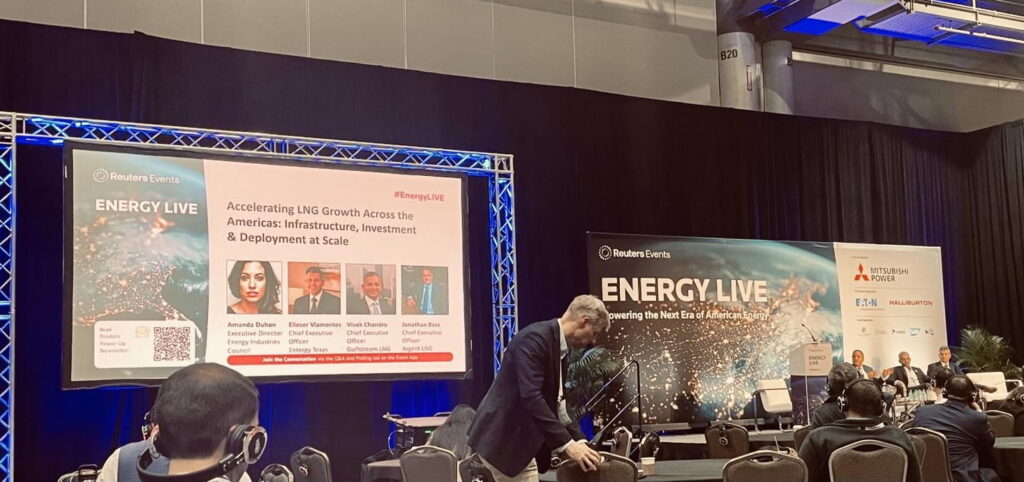At a talk in Vermont last week, the nation’s top energy official offered up his thoughts on a problem the White House has said calls for “urgent action”: climate change.
“We need to mitigate the effects of climate change and need to adapt at the same time,” said Dr. Ernest Moniz, Secretary of Energy, as he described the findings of a White House report issued earlier this month outlining the dangers of global warming and the impacts already felt nationwide.
But Moniz’s talk also highlighted a fundamental flaw in the approach that President Obama has taken to energy and the environment.
The president has begun sounding alarm bells about the hazards and costs of worsening climate disruption. At the same time, he has aggressively promoted the nation’s ongoing shale gas rush. And yet, experts warn this drilling frenzy may have wiped out most of the gains made by slashing carbon dioxide emissions from burning coal.
It’s a paradox that the Washington Post labeled “a jarring juxtapostion” and “the contradiction at the heart of President Obama’s climate change policy.”
During his talk, the Energy Secretary extolled the nation’s progress in cutting emissions of a key greenhouse gas, carbon dioxide. “We are roughly halfway to the president’s 17 percent (greenhouse gas emissions) reduction goal by 2020,” he said, “and half of that has been gas substituted by coal.”
But he also signaled the administration’s support for the natural gas industry, explaining that when gas burns, it only emits a little more than half as much carbon as coal and praising the industry for helping create manufacturing jobs in the U.S.
“Our strategy is called ‘All of the above,’” Moniz said, echoing a talking point crafted by the oil and gas industry in 2000 that has been widely adopted by the Obama administration.
The problem for the Obama administration is that carbon dioxide is not the only greenhouse gas that could have stunning impacts on the world’s climate. Natural gas is made up of methane, a greenhouse gas that the U.N.’s leading climate experts warn is 86 times more potent than carbon dioxide during the first two decades after it leaks out into the atmosphere. And a growing number of studies have shown that much more methane is leaking from natural gas operations than previously believed — enough to make using natural gas even worse than coal for the climate.
The Obama administration is tripping over its own intellectual shoelaces. The “all-of-the-above” rhetoric isn’t just dishonest, it’s dangerous. It gives the impression that the administration is backing renewable energy, while still continuing enormous subsidies for oil, gas and coal. And as policy-makers muse over solutions, the planet is reaching a tipping point that even the likes of Thomas Friedman have flagged.
Earlier this month, the White House released a National Climate Assessment, ordered by the US Congress and co-authored by 300 scientists, that made clear that the administration is aware of the hazards posed by man-made global warming and the impacts of continued fossil fuel use.
“While scientists continue to refine projections of the future, observations unequivocally show that climate is changing and that the warming of the past 50 years is primarily due to human-induced emissions of heat-trapping gases. These emissions come mainly from burning coal, oil, and gas, with additional contributions from forest clearing and some agricultural practices,” the report warned. “The only real surprises have been that some changes, such as sea level rise and Arctic sea ice decline, have outpaced earlier projections.”
“The findings in this National Climate Assessment underscore the need for urgent action to combat the threats from climate change, protect American citizens and communities today, and build a sustainable future for our kids and grandkids,” the White House said in a statement released with the report.
“This is not some distant problem of the future,” Obama told NBC. John Holdren, director of the White House Office of Science and Technology Policy, added that climate change “already is affecting every region of the country and key sectors of the economy.”
The report, which warned of drought and wildfires in the west and East Coast flooding endangering major cities, reflects some of the strongest language used by federal officials to date regarding climate disruption.
But at the same time, President Obama has pushed hard for the expansion of shale gas drilling and more reliance on natural gas.
“The President is calling on Congress to work with the Administration and State and local governments to create Sustainable Shale Gas Growth Zones, helping regions come together to make sure shale gas is developed in a safe, responsible way that helps build diverse and resilient regional economies that can withstand boom-and-bust cycles and can be leaders in building and deploying clean energy technologies,” said a White House release after this year’s State of the Union address.
“In addition, the President announced specific ways to better focus on leveraging natural gas in manufacturing, transportation, and power generation – creating jobs, reducing costs, and reducing dependence on foreign oil,” the White House added. “The Administration will help States and localities coordinate review of proposed private sector projects to invest in new energy-intensive U.S. manufacturing plants relying on natural gas.”
The President’s pro-gas approach has drawn sharp rebukes from climate change activists, who say it’s impossible to have both ways.
“You can’t say you care about ending cancer and then go buy a carton of cigarettes,” said May Boeve, executive director of 350.org. “And you can’t say you care about the climate and then go dig up more fossil fuels.”
It’s a contradiction that some argue could be resolved by clamping down on methane leaks from the industry. Cut the leaks, the logic goes, and you can reap the benefits of natural gas’s low carbon emissions when burned. Everyone wins.
But scientists who have closely studied the natural gas industry warn that this approach is unlikely to be practical. Regulation, they add, could be both too little and too late.
“If you’re going to regulate these emissions sources, both the venting and the leaks, it presupposes that you have good information on where the leaks occur,” said Robert Howarth, a Professor of Ecology and Environmental Biology at Cornell, explaining that new research has documented leaks in places and times, like shale drilling, where the EPA expected only minimal methane emissions.
Anthony Ingraffea, a Cornell professor of engineering and co-author with Howarth of a seminal paper on methane leaks, warned that, given the narrow range of time that the U.N.’s climate experts say remains to prevent run-away global warming, these repairs could take too long and the government’s track record does not reflect a strong political will to strictly enforce rules.
“We don’t have 100 years to worry about the problem anymore. We have 15 to 25 years,” said Prof. Ingraffea during a press conference held to respond to the National Climate Assessment. “It is just not realistic to expect that in a few years, which is all we have left to do something significant, that an act that should have been cleaned up decades ago is going to be cleaned up.”
On the same day, new federal research, based on measurements taken in Colorado’s natural gas fields, was published in the American Geophysical Union’s Journal of Geophysical Research, adding further evidence that the Environmental Protection Agency has sharply understated the amount of methane currently leaking from natural gas operations.
A team of researchers from the National Oceanic and Atmospheric Administration’s Cooperative Institute for Research in Environmental Sciences recorded methane leaks over oil and gas operations in the Denver-Julesburg Basin, which they found released about 19 metric tons of methane per hour — roughly triple the Environmental Protection Agency Greenhouse Gas Reporting Program’s hourly average estimate for oil and gas. That program’s estimates are based on industry self-reporting – and, it turns out, returned wildly optimistic results compared to actual measurements of leaks over natural gas wells.
These methane leaks have impacts that are at their most powerful right now, and will remain so for the next 20 years, the time frame that experts explain is most crucial in preventing the climate from hitting a tipping point.
“We have to control methane immediately, and natural gas is the largest methane pollution source in the United States,” Prof. Howarth told reporters at Cornell. “If we hit a climate-system tipping point because of methane, our carbon dioxide problem is immaterial. We have to get a handle on methane, or increasingly risk global catastrophe.”
Time will tell whether the Obama administration will hear that message — or if the President’s championing of the shale gas rush will wind up pushing the world’s climate out of the frying pan and into the fire.
Photo Credit: Earth Melting into Water, via Shutterstock.
Subscribe to our newsletter
Stay up to date with DeSmog news and alerts






